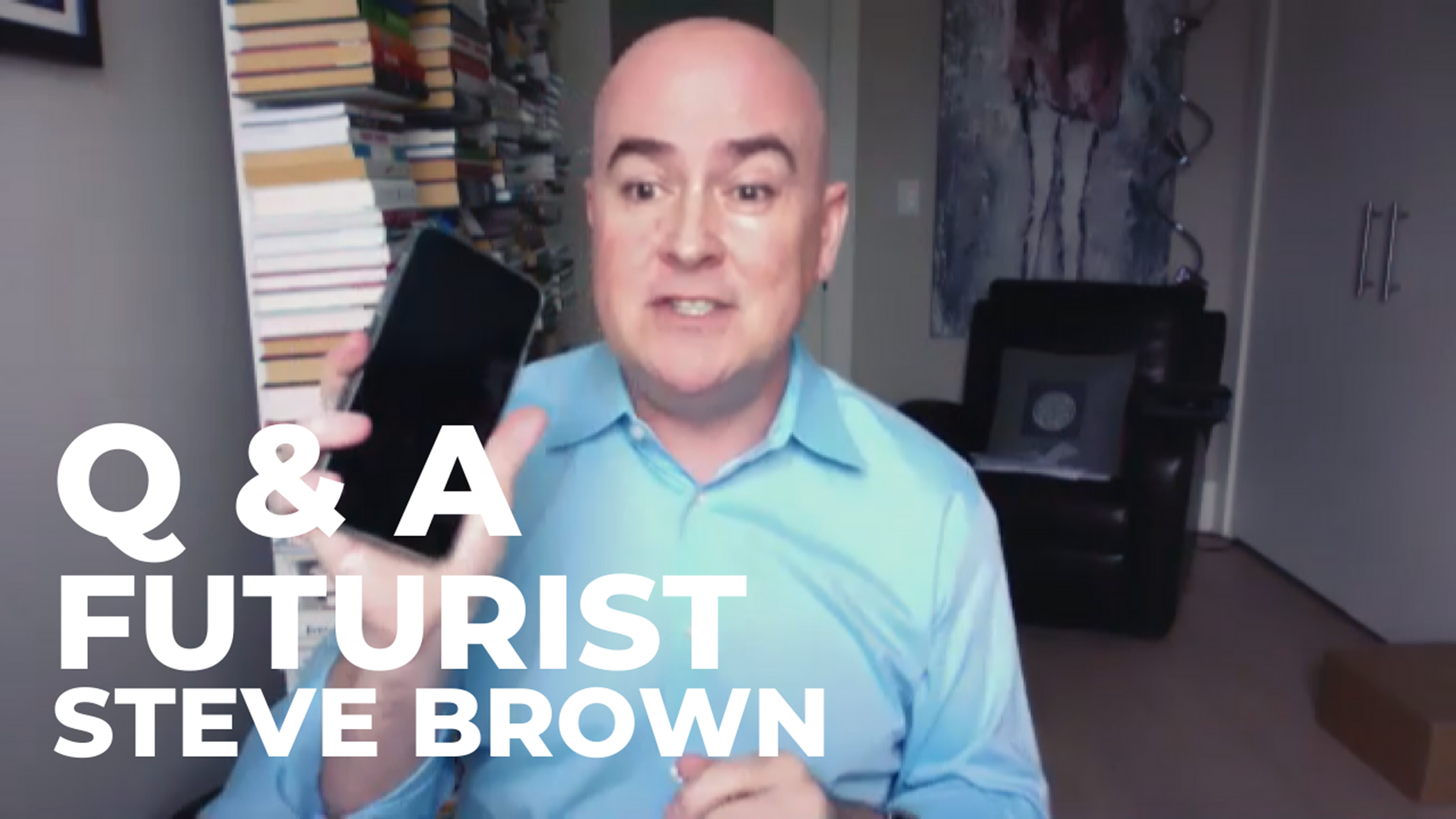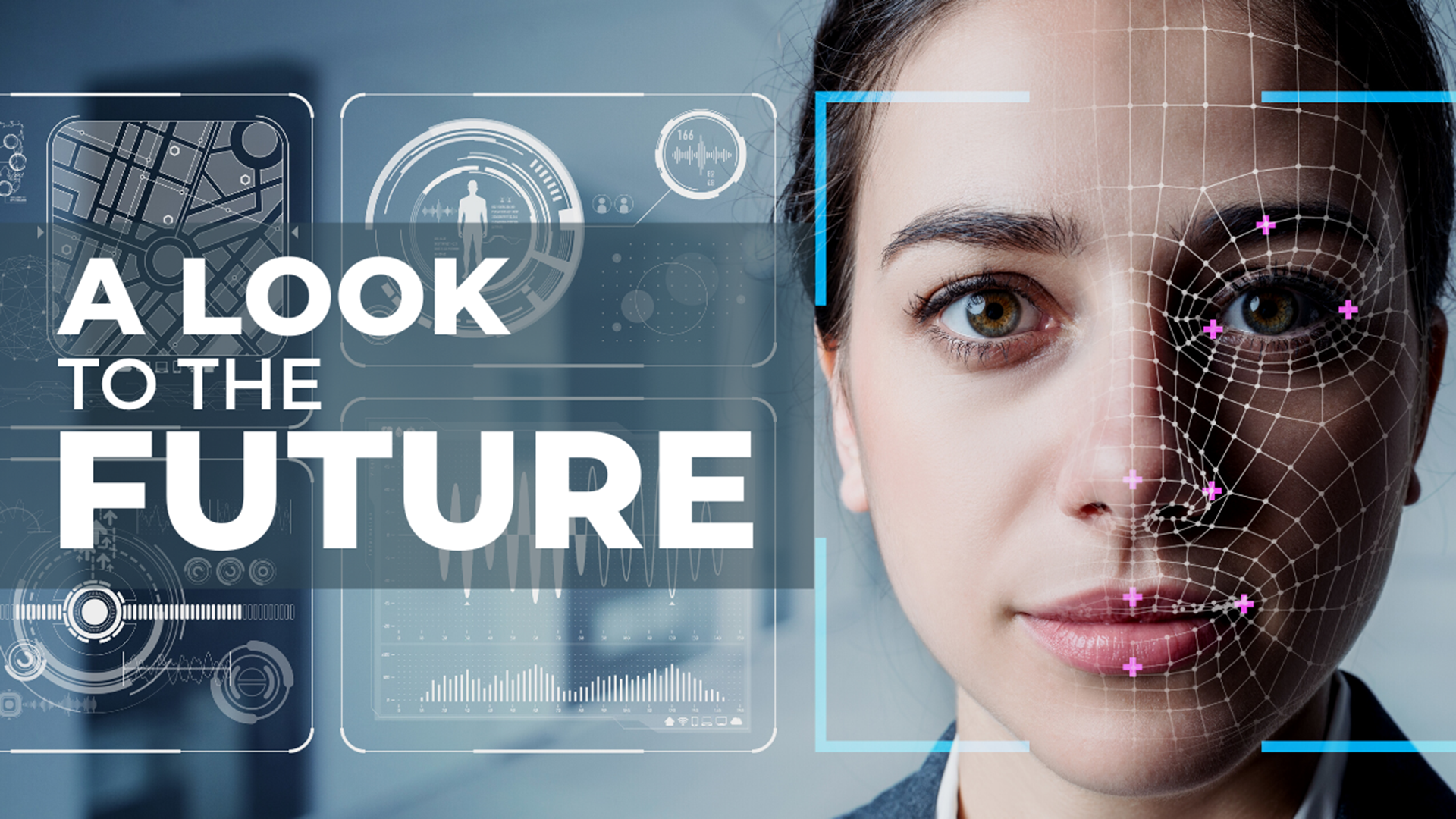PORTLAND, Ore. — As the former futurist and chief evangelist at Intel, Steve Brown is used to looking ahead and that's exactly what he's doing now. As the coronavirus outlook changes day to day, Brown is analyzing developments, thinking about what technological advances could be in the works and how businesses and human behavior could change as a result.
In early February, we spoke with Brown about some of the changes he expects across a number of industries but at the time, the US wasn't seeing powerful impacts of the coronavirus pandemic. So we caught up with Brown to see if he's still optimistic about the future and asked him about the long-term changes we might see in response to COVID-19.
Editor's Note: Some of the responses have been shortened for clarity.
Q: It seems like you're still optimistic about the future, why is that?
Brown: It is a really unpleasant time right now, it’s really difficult for people. People are scared, people are stressed and I understand that, I am too. It’s a difficult time but we need to also recognize that this will come to an end. We will move beyond this and some good things will come out of this. If you think about other times in the history of humans, think about World War II. That was a really difficult time, extreme circumstances for millions of people around the planet, but what came out of that was massive amounts of innovation.
So modern air travel came out of World War II — jet engines, pressurized cabins, radar, air traffic control were all a function of World War II. Rockets came out of World War II and without rockets we wouldn’t have satellites — communication satellites, GPS, there would be no Uber. Even penicillin and antibiotics, penicillin was discovered in 1928 but it wasn’t used at scale until the Normandy landings in 1944. World War II was this crucible for lots of innovation that occurred and I think we’re going to see the same thing again. As you put constraints on the world it’s going to make people more innovative and accelerate innovation that maybe was going to happen anyway but it’s going to make the world a better place as a result.
Q: What specific coronavirus-related innovations do you expect to see?
Brown: We’re seeing a lot of things that were going to happen anyway. For example, education moving partly online, that’s had to happen as a function of people needing to be physically distant from each other. Kids are now used to going online and learning from the teacher and the teachers had to learn how to create lessons and give them online. Once this is all over and people realize ‘well that’s actually a pretty good way to teach people for some classes' that may become a standard part of the curriculum. So it’s accelerated that.
You’re seeing the same thing in healthcare, people using telehealth, using their phones to contact their doctors to do simple check-ins. So after this is all over I expect telehealth to continue at a higher rate than it is today.
Now there are other technologies that I think we’re going to see a lot more use of, virtual reality and augmented reality. These are technologies give us much richer ways of communicating with each other when we’re far apart. We’re talking right now on a video call, that’s okay technology but it’s not nearly the same as being in the same room together. Technologies that help us feel like we share the same spaces are going to become much more important in the coming years, for business and for social interactions as well.
You’re going to see a lot more investment in home delivery services as well. People are starting to embrace that wholesale because they want stuff to come to their home. We’re going to find that once this is all over that’s just a really convenient way of living our lives. And there’s been a lot of investment already in robots that can do that delivery to the home. And robots don’t carry diseases like humans so that’s going to be an attractive thing in the short term to address this problem and then longer term robots will just be there to deliver our groceries to our homes for us.
Q: How might businesses change after this pandemic?
Brown: One of the things that I think many businesses have realized is the fragility of the modern world. All of a sudden suddenly everything got turned upside down. A lot of businesses are going to be making moves to try and make sure that they can be much more resilient in the future. That’s going to mean they might simplify their supply chains, maybe bring some manufacturing back from far flung shores and I think we’re going to see a lot of innovation in supply chain as well.
We all feel out of control right now and we’re going to want to reassert control over our lives and one of the ways we’ll want to do that is we’ll want to know much more about the products that we buy. Where do they come from? What did it take to make them? How much energy is used in them? Are they safe to eat? Was child labor used to make this? Supply chains are going to have to build in much more transparency and traceability so they can start to give us that information to help us make informed decisions about purchases but also to prove that to us. That’s called a provenance chain. There’s actually a company in Portland that works on just that, giving consumers much more visibility into the products that they’re buying and where they come from so they can make those informed decisions.
Q: How will individual behavior change?
Brown: In some ways it’s too early to tell but some of the obvious things are our lives are going to be more digital and less physical. Normally I would come into a TV studio to talk to you but now we’re talking digitally and I’m at my home and you’re at your home. We are seeing that people will want to exert more control over their lives because people have felt out of control and probably less trust. So more control, less trust. We’re going to want to be given information about what we’re buying and where it came from, so more local less global.
Perhaps more gesture interfaces where we can use our hands to gesture and less touch. We’ve all been used to using our phone but they're a petri dish now. So those touch surfaces in fast food stores and checkouts at Safeway, they may have to go away and move to more gesture interfaces. And even the way we interact with each other. We’re used to shaking hands but maybe we don’t as much anymore, maybe we just wave. So moving to more gesture, less touch.
But how do we use technology to increase the humanity in the world? Increase the humanity and connections, given that we may have to be physically distant. I’m not a big fan of social distancing. We are social animals and we crave social connections with people and that’s why people are doing these virtual happy hours and checking in on Zoom and Houseparty and all these apps. We’re social creatures but we need to be physically distanced for now.


